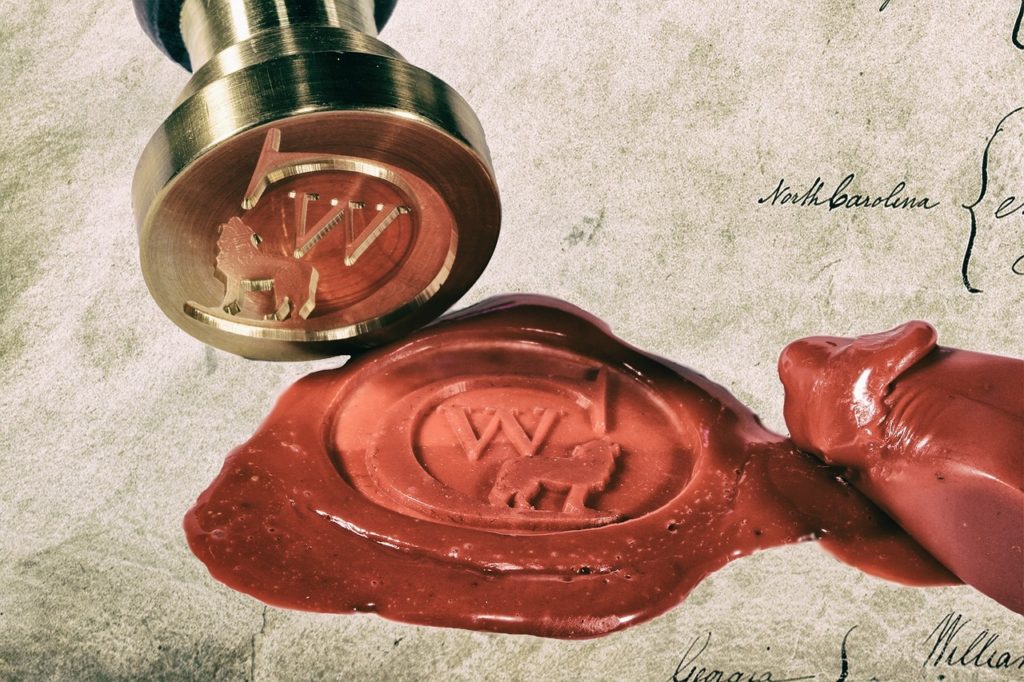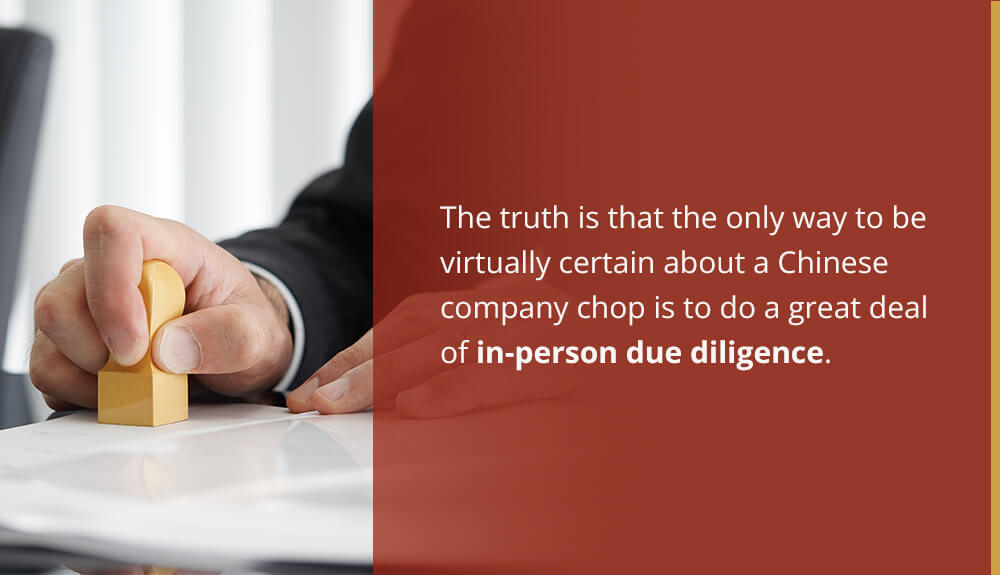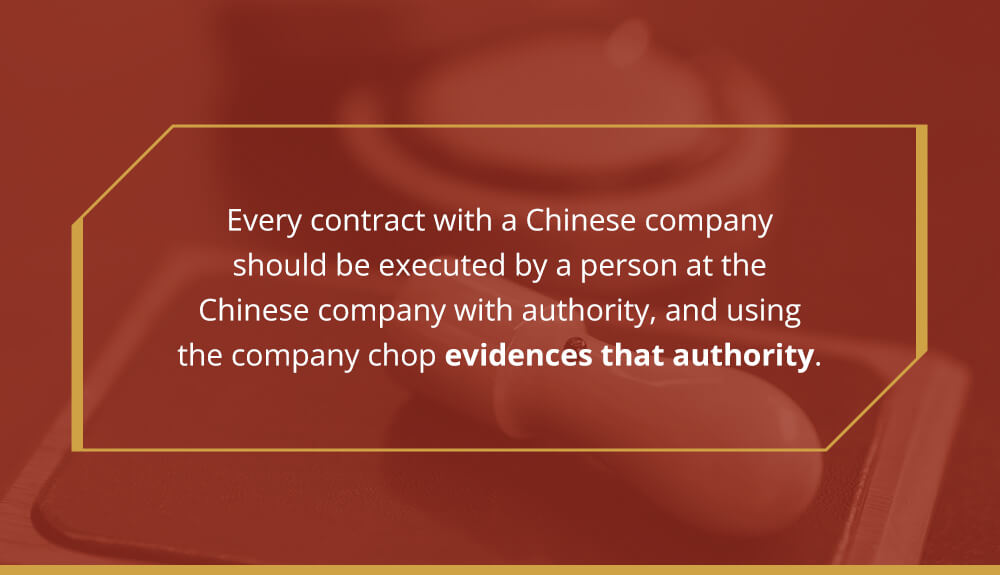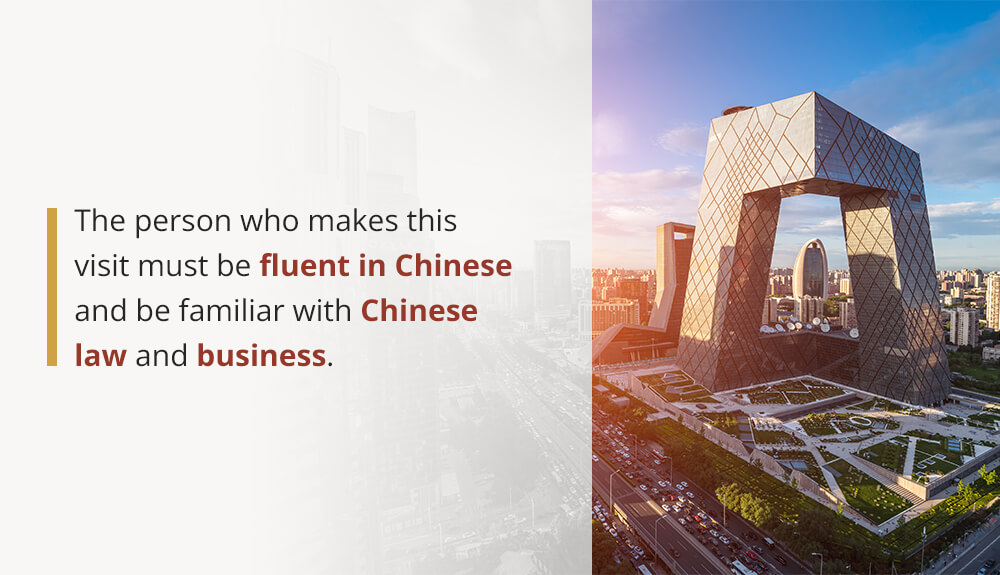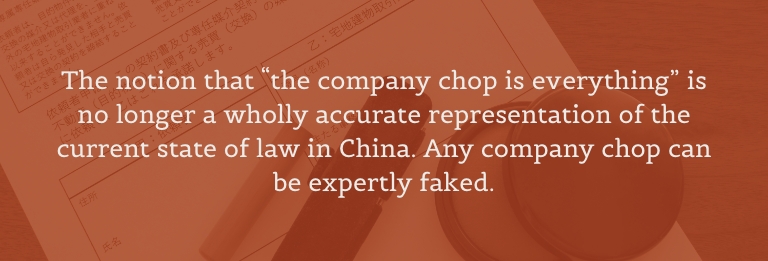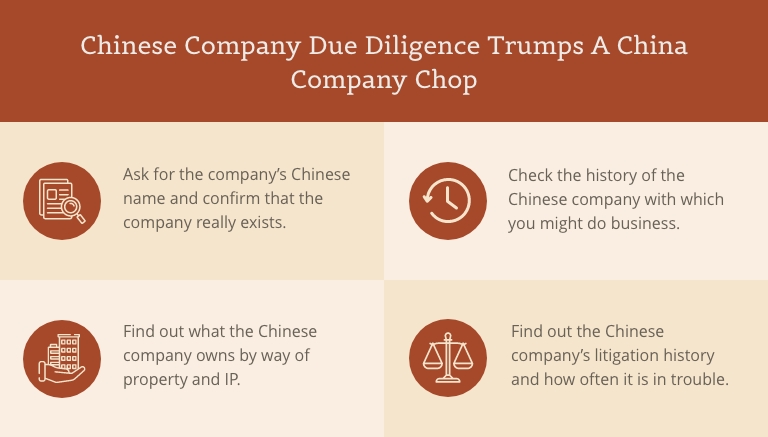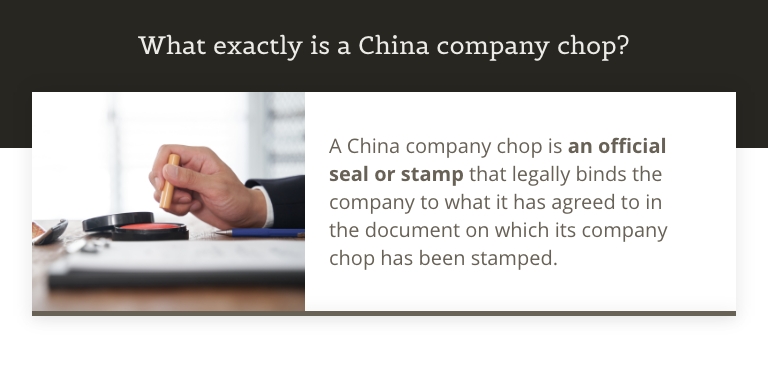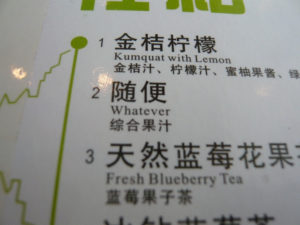Contents of this Article:
- Is that a real Chinese company chop/stamp/seal?
- It is worth getting a China company chop on your contract?
- Chinese company due diligence trumps a China company chop
- What exactly is a China company chop?
- The various types of China company chops
1. Is that a real Chinese company chop/stamp/seal?
Our China lawyers constantly get requests from clients (and even non-clients) to “validate” the company chop/seal/stamp on a contract that is about to be signed.
The below email between one of our China lawyers and a client sets out what our client can do to help ensure that the company chop (a/k/a company stamp or company seal) on its China contract corresponds with the actual company chop held by the Chinese company with whom our client is conducting its China business.
Thinking the email might be helpful to our readers, I have reproduced a sanitized version of it below.
I start by noting that because we have already conducted due diligence on this company, your odds of having a future problem with this company and its company chop have gone down. The fact that this company is in the medical device business (and is not a rubber ducky manufacturer) also reduces the odds of you having a company stamp problem.
But, the truth is that the only way to be virtually certain about a Chinese company chop is to do a great deal of in-person due diligence. For example, you could visit the factory in person, inspect the company chop there, then compare it to previous contracts executed by the company and provided to you. Or, better yet, you can send a Chinese attorney to confirm with the government that the company chop that will be used on your contract is actually the company’s real company chop. But since the dollar value of this particular transaction probably does not warrant your doing these things, we suggest you ask the Chinese party to provide you with the following:
1. Mr. Zhou’s title, in Chinese and English;
2. Mr. Zhou’s name in Chinese characters;
3. A scanned copy of Mr. Zhou’s business card, in Chinese and English;
4. A copy of the company’s business license.
5. An explanation as to why the company seal/company chop/company stamp on this document appears nonstandard (i.e., oval instead of circular) and does not include the company’s registration number.
We seek the above information regarding Mr. Zhou because if we can get comfortable in believing Mr. Zhou in fact works for the Chinese company doing the deal, the odds of the company chop being a fake have gone way down and the odds of a Chinese court invalidating the contract go way down as well.
An official (as opposed to a fake) China company chop contains the full registered name of the company (in Chinese). For a China company chop to be official, it must have been filed with China’s State Administration for Market Regulation. An official company chop is a red-inked circular or oval stamp. China company chops sometimes, but not always, contain a registration number and/or even a translation of the Chinese company name in English. Our highly experienced China lawyers know one when they see one, but even they can never be entirely certain whether they are looking at a real one or a very good fake.
As above, the only way to be as certain as possible about the authenticity of a China company chop is to do a great deal of due diligence, either in person or via a trusted agent. Especially during COVID times, this sort of physical check on a company chop/seal is seldom fast or easy, so comprehensive company chop comparisons are typically reserved for larger deals or deals on which there are suspicions about the other side’s legitimacy.
2. Is it worth getting a China company chop on your contract?
If it rarely makes sense to truly confirm the validity of the China company chop used by your Chinese company counter-party, does it even make sense to make the effort? It generally does, especially if you (or your China lawyers) have experience in quickly/cheaply distinguishing a real chop from a fake one. The reason we come down on the positive side on this is because it takes the typical Chinese company all of five minutes to chop a document and there is no good reason for it not to do so. If it demurs, that is itself a good indicator that there is something fishy going on.
It is always a good idea to have your Chinese counter-party “chop” or “seal” your China contracts with their official China company chop. Every contract with a Chinese company should be executed by a person at the Chinese company with authority, and using the company chop evidences that authority.
An official Chinese company chop on a contract legally says the Chinese company itself has authorized the contract. This is important because if you end up having issues with your Chinese counter-party, you do not want that company to be able to claim that it never agreed to the contract/transaction. Perhaps most importantly, if your Chinese counter-party refuses to affix its company chop to the agreement it claims to want with you, this likely means that the person or the company with which you are dealing actually does not have the authority to act on behalf the Chinese company it previously claimed to be representing.
The requirements for Chinese company chops differ by city, making it difficult to know just by looking at it if a company’s chop is proper, legally registered and authorized. For this reason, Chinese courts have decided that if a document is chopped with something that purports to be the company chop and if the signer of the document is either the legal representative of the Chinese company or a person with apparent authority to act on behalf of the Chinese company based on their business card, the court will usually not invalidate the contract based on a technical argument related to the validity of the company chop or the authority of the signer.
What this means in real life is that if you ever need to sue a Chinese company for breach of contract and the Chinese company claims in a Chinese court that the company chop on your contract is not really theirs and its president (per his/her business card) did not have authority to sign on behalf of the company, the Chinese company will almost certainly lose. This means that if your contract is not signed with a proper company chop/stamp/seal, you will have one more hurdle you will need to jump to earn your litigation victory. What if it is a mid-level manager who signs your contract and not the company president? Prevailing on your breach of contract claim is now less certain. But generally, if the company chop looks authentic and the person signing your contract or document has apparent authority to act on behalf of the Chinese company, that is usually all that is required.
Since there are so many kinds of company chops (see the list of various China company chops set forth below), our China lawyers typically advocate that you insist on the standard round company chop using red ink. Some of these company chops are numbered and some are not; this varies by district and is not an indicator of validity. The newish oval company chops in black and purple are not common and generally should be avoided. Unfortunately, some districts have moved to using these oval company chops, so it can be a good idea to determine whether you are in one of these districts. Our China lawyers prefer standard round company chops with a star in the middle, and nearly all Chinese companies have this style of company chop.
As mentioned above, the only way you can be certain about the authenticity of a Chinese company chop is to do expensive and time-consuming and difficult in-person due diligence. This involves sending a qualified person (typically a Chinese lawyer) to the head office of your Chinese counter-party to inspect the company chop there and then compare that company chop to the company chop used on previous contracts executed by the company and provided to you during your visit. The person who makes this in-person company visit must be fluent in Chinese and know enough about Chinese law and business to be able to discern whether the older contracts you are being shown as proof are real or not. As you can imagine, this sort of in-person due diligence is not ordinarily done, other than on big-money transactions for which time is not of the essence, or when the Chinese company is in a location that makes such a check convenient.
An even better way to determine the validity of a Chinese company chop is to send a China attorney to confirm with the Chinese government that the company chop that will be used on your contract is the Chinese company’s real company chop. But this method too is usually used only for big money transactions, because getting an attorney to run to the local office is usually neither cheap nor easy.
To a certain extent, China company chops are overrated as a proof of legitimacy. The big issue is whether you are dealing with a person in the Chinese company with authority to bind the company. Are you even dealing with the company and not some rogue employee or third party? Does the company even exist, using the name they have given you? These are the critical issues, and they require real work to resolve. The notion that “the company chop is everything” is no longer a wholly accurate representation of the current state of law in China. Finally, any company chop can be expertly faked. So even if you know what the genuine chop looks like, you cannot know whether the one you are looking at is actually that company chop or a fake of that company chop.
3. Chinese company due diligence trumps a China company chop
Even if the company chop that will be going on your contract is authentic, it is still important to conduct due diligence on the Chinese company with which you will be doing business, and to do this before you sign anything. When conducting due diligence, the following are usually the bare minimum of what you should do:
- Ask for the company’s Chinese name and confirm that the company really exists and is legally authorized to do what it says in your contract it will do. You can find basic information about Chinese companies from various online government and private company databases.
- Check the history of the Chinese company with which you might do business. Most fake companies do not bother to create a business history. If a company does not have a history you can verify, walk away.
- Find out what the Chinese company owns by way of property and IP.
- Find out the Chinese company’s litigation history and whether and how often it is in trouble with the government.
The bottom line is that before you commit to a deal, you should learn as much as you can and as much as makes economic sense about your China business partner(s).
4. What exactly is a China company chop?
A China company chop is an official seal or stamp that legally binds the company to what it has agreed to in the document on which its company chop has been stamped. Under Chinese law, a company chop is strong legal evidence of the agreement of the company whose chop is on the document. The company chop (a/k/a company seal or company stamp) essentially replaces a signature on contracts and other important documents. The company chop binds the entire company, usually no matter who (if anyone) actually puts their signature on the document.
5. The various types of China company chops
When someone refers to a China company chop, a China company seal, or a China company stamp, they are almost always referring to what is an official China company chop. Official company chops are typically used to chop a contract, or to do something with the Chinese government or a Chinese financial institution. The key thing to know about an official China company chop is that it nearly always binds the company whose chop has been used to whatever has been agreed to in the document sealed with the official company chop.
China also has various other more specialized chops, including financial chops, customs chops, contract chops, and legal representative chops, but these are generally less likely to be encountered by foreign companies doing business in or with China. There is also an invoice chop, sometimes called a fapiao, which is both a receipt (i.e., proof of purchase) and a tax invoice (i.e., a way to determine the tax paid on a given transaction).
China also allows for electronic chops. These are the digital equivalent of a company chop and they can have the same legal validity as a physical chop.










